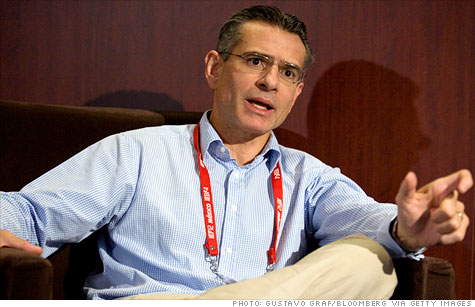Search News

Juan José Suárez Coppel, CEO of PEMEX
FORTUNE -- The Mexican oil industry is stuck in a holding pattern. In 1938, the Mexican government cast out foreign drillers and formed a national oil company, Petróleos Mexicanos, or PEMEX. It was a moment of great national pride, and for years, the model has worked. PEMEX has sent most of its profits to the government, which currently accounts for approximately one third of the government's income, according to PEMEX.
But recently, this business model has started to flag. There's still plenty of untapped oil in Mexico, but PEMEX needs new technology to get at oilfields that are hard to access, and the company's government affiliation has slowed the process. Last year, PEMEX started providing more financial incentives for foreign companies to drill in Mexico, but some major oil companies might not bite, given that Mexico will own all of the oil produced.
PEMEX's CEO, Juan José Suárez Coppel is champing at the bit to be as competitive as other major oil companies, but he thinks PEMEX will need to undergo significant change before that's a possibility. Suárez recently spoke with Fortune about PEMEX's difficulties. Below is an edited transcript of the conversation.
FORTUNE: What is the main problem with PEMEX's current setup?
Juan Suárez: I would describe it as having too many cooks in the kitchen. When you have too many cooks in the kitchen, nobody is responsible for the broth.
F: What do you mean by too many cooks in the kitchen?
JS: I think the clearest example is that we're not responsible for setting our yearly operating expenditure budget. It gets set together with the federal budget, once a year. The point is, about one-third of the current expenditure of the government is the operating expenditure of PEMEX. And the guy looking at my expenditure is not the same guy that's looking at my income.
I'm not saying we don't have a lot of opportunities, what creates a problem is not that we don't have enough money. I'm not saying we're not overspending in some things, but its very hard to get to that efficiency when you have all those cooks.
Are there examples of national oil companies that function well?
Saudi Arabia. Saudi Aramco does everything. They have a very capable machine, it's one of the most efficient oil companies in the world. They invest as much as they need, and they run it as a true company. The people working at Aramco are not public servants, they hire around the world and they have top technology.
Are you having trouble keeping talent at PEMEX?
We are not managing our human resources as we should. For example, people in high management, their wages are equated to public servants'. So what has happened is that since 2004, nominal wages in pesos have decreased by 10%. Then we have these guys who made a career in PEMEX, they have a lot of technical experience, and all of a sudden, at the peak of their career, their wages got frozen. Then they go to oil service companies. Or as soon as they can, they retire. We have a very good retirement plan, way too good.
How are you trying to solve the problem?
We are trying to get the story out that historically, when you give resources to PEMEX, you get great results. What we need is to have a scheme that has independence, but with compliance and all the required governance. That's much easier than the other alternative, which is ... to completely privatize.
So do you want to tweak the setup or will this require a sweeping change?
I think sweeping [change] has a lot of advantages.
When will that happen?
Can you get PEMEX to do these changes in the next year? No, but I think we can keep traveling along that path. ![]()